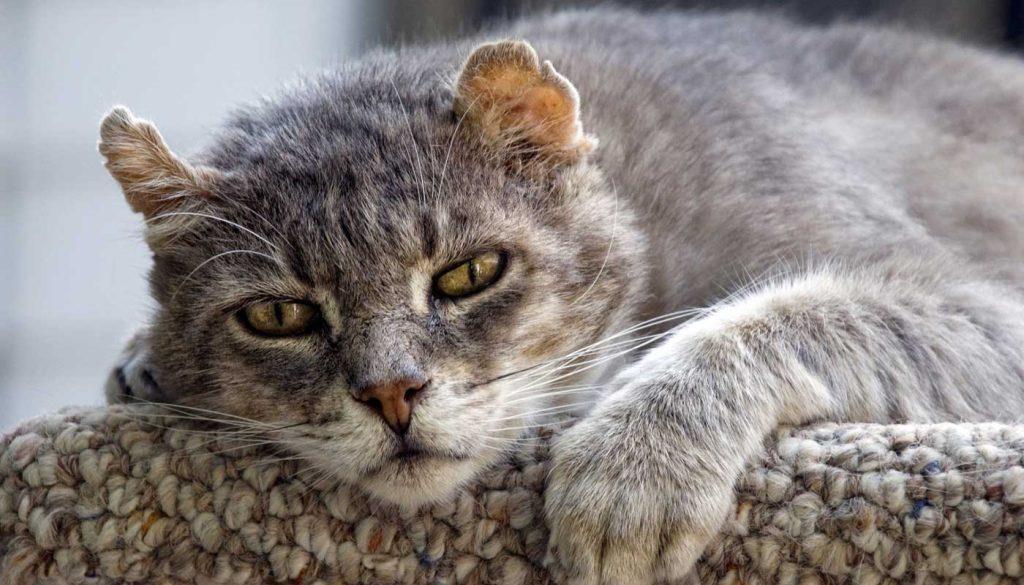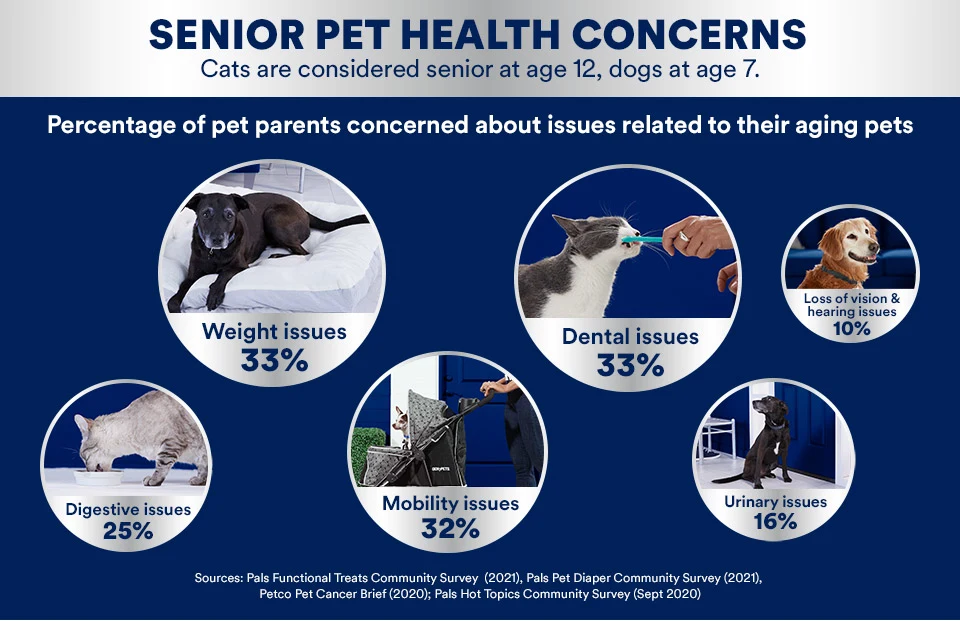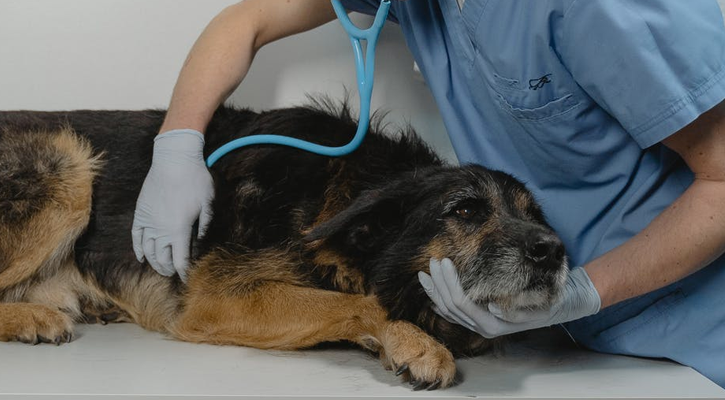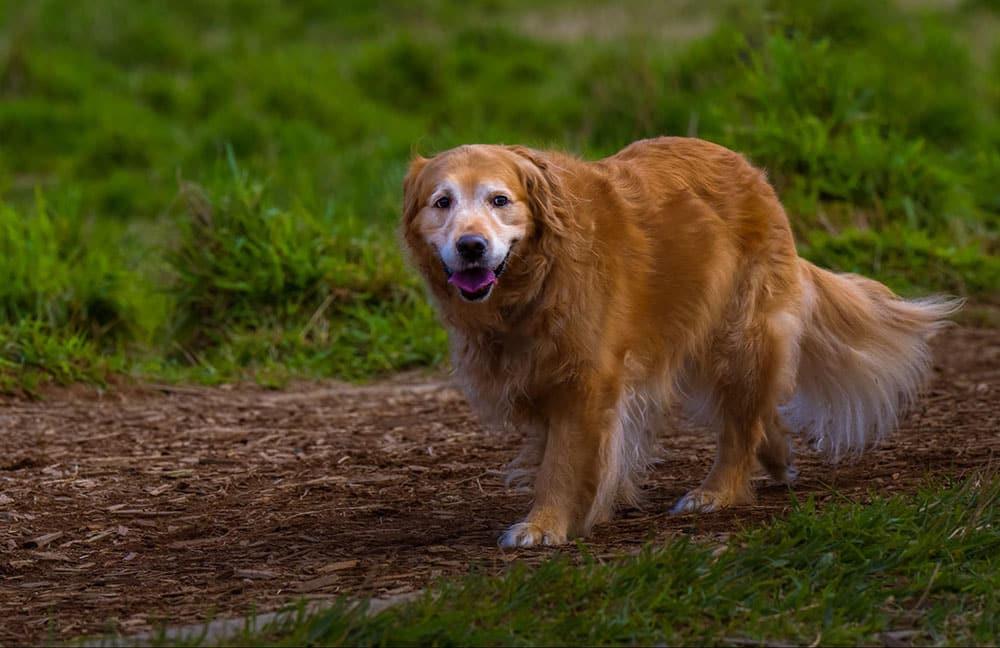Understanding the Aging Process in Pets
The journey into the golden years is a shared experience between pets and their owners. Understanding the ageing process in pets is vital to ensure they lead a healthy, fulfilling life. The ageing process in pets involves a range of biological changes, including diminished physical activity, increased susceptibility to diseases, and changes in behaviour and cognition.
Factors Influencing the Aging Process
Several factors influence the ageing process in pets. These include breed, genetics, diet, environment, and healthcare. For instance, smaller dog breeds tend to live longer than larger ones. Furthermore, a balanced, nutritious diet and regular vet check-ups can significantly influence your pet’s lifespan.
How Aging Varies Among Different Types of Pets
The ageing process varies widely among different types of pets. For instance, dogs and cats show ageing signs at different rates, and their lifespan can vary significantly. Similarly, exotic pets such as reptiles and birds have unique ageing processes.
Understanding your pet’s ageing process allows you to provide the appropriate care and support. This knowledge will enable you to manage the effects of ageing in your beloved pets effectively.
Understanding the Signs and Symptoms of Aging in Pets
As our beloved companions approach their twilight years, it’s crucial to be aware of the subtle changes that may indicate aging. Understanding these signs can help you provide the best care for your pet.
Physical Changes in Aging Pets
As pets age, they may experience physical changes such as weight gain, decreased mobility, or hair loss. It’s essential to monitor their physical condition regularly.
Behavioural Changes in Aging Pets
Changes in behaviour, such as increased aggression or a lack of interest in play, can also be signs of aging. These changes can be subtle, and it’s crucial to observe your pet’s behaviour closely.
Cognitive Changes in Aging Pets
Pets may also experience cognitive changes as they age, including a decrease in mental alertness and memory. These changes can be distressing for pets and their owners.

Common Health Issues in Aging Pets
Older pets are more prone to health issues such as arthritis, heart disease, and diabetes. Regular vet check-ups are essential to detect these issues early and manage them effectively.

The Impact of Aging on a Pet’s Quality of Life
As your pet reaches their golden years, it’s essential to understand how aging may impact their physical abilities, behaviour, personality, and social interactions. Understanding these changes can help you better care for your aged pet, ensuring their quality of life remains high.
A. Impact of Aging on a Pet’s Physical Abilities and Comfort
Aging often brings with it a decline in a pet’s physical abilities. This can include diminished sight and hearing, reduced mobility due to arthritis, and a general decrease in energy. These changes can significantly affect a pet’s comfort and ability to enjoy activities they once loved.
B. How Aging Affects a Pet’s Behaviour and Personality
As pets age, their behaviour and personality can also change. They may become less active, more irritable, or show signs of confusion. These changes can be a result of physical discomfort or cognitive decline.
C. Aging and a Pet’s Social Interactions
The social interactions of a pet can also be affected by aging. They may become more withdrawn or show less interest in play. It’s crucial to encourage socializing, as isolation can lead to depression.
D. Additional Impacts of Aging on a Pet’s Quality of Life
If there are multiple h2 tags, they will be converted to h3 tags to maintain consistency in the content structure. This ensures that all key topics are given equal importance. It’s important to address all aspects of aging and their impact on a pet’s quality of life to provide comprehensive care for your beloved pet.
By understanding these impacts, you can provide the necessary support for your pet as they age, ensuring they continue to enjoy a high quality of life.
Essential Veterinary Care for Aging Pets
As pets age, their health needs change dramatically. Much like humans, they require more frequent medical attention to manage common age-related ailments. Regular vet check-ups become increasingly essential to monitor their health status and detect any potential issues early.

Preventative Measures and Treatments
Preventative measures for aging pets include a balanced diet, regular exercise, dental care, and timely vaccinations. However, if your pet falls ill, treatments may range from medication to surgery, based on the severity and nature of the illness.
Recognising the Need for Veterinary Intervention
Understanding when to seek veterinary intervention is crucial in ensuring your pet’s well-being. Changes in behaviour, appetite or physical appearance are often signs of underlying health issues. Don’t hesitate to consult your vet if you notice any unusual changes in your pet.
Nutritional Needs of Aging Pets
As pets age, their nutritional requirements change. They may require fewer calories due to decreased activity levels, but they also need a higher intake of certain nutrients, such as protein, to maintain muscle mass and support a healthy immune system.
Recommended Diets for Aging Pets
When it comes to feeding older pets, a diet rich in high-quality proteins, balanced fats, fibre, and enriched with essential vitamins and minerals is ideal. Research suggests that antioxidants can also be beneficial.
The Role of Supplements in an Aging Pet’s Diet
Dietary supplements can play a pivotal role in an aging pet’s diet. Supplements such as glucosamine and chondroitin can support joint health, while Omega-3 fatty acids can boost heart health and improve coat condition. Always consult a vet before adding supplements to your pet’s diet.
The Importance of Maintaining Physical Activity in Aging Pets
As pets age, maintaining a regular schedule of physical activity becomes increasingly crucial. Exercise not only keeps pets physically fit but also plays a vital role in their mental health. Expect a reduction in behavioural problems in pets that engage in regular physical activity. It’s a vital component in managing age-related conditions like arthritis and obesity.

Suitable Types of Exercise for Aging Pets
While exercise is important, not all activities are suitable for older pets. Low-impact activities like walking or swimming can be ideal for senior pets, providing the necessary exercise without straining their joints. T
Balancing Exercise with Rest for Aging Pets
It’s important to balance exercise with adequate rest. Aging pets require more downtime for their bodies to recover. Over-exercising can lead to injuries and exacerbate existing health issues.
Mental Stimulation and Cognitive Health in Aging Pets
The significance of mental stimulation in maintaining cognitive health in ageing pets is paramount. Studies indicate that mental stimulation can slow down cognitive degeneration, akin to the effect of mental activities in elderly humans. Essentially, keeping your pet’s mind active can help ward off diseases like dementia.
Enrichment Ideas for Ageing Pets
There are many ways to mentally stimulate your ageing pet. Interactive toys, new environments, and puzzle feeders are great options. Even simple activities like hiding their favourite treat can stimulate their cognitive abilities.
Training and Learning New Skills
Despite the old saying, you can teach an old dog new tricks. In fact, ongoing training and learning new skills can significantly benefit ageing pets. This not only provides mental stimulation but also reinforces bonding.
Recognizing and Addressing Signs of Stress or Anxiety in Aging Pets
Understanding your pet’s behaviour is instrumental in identifying signs of stress or anxiety. Changes in behaviour such as increased aggression, withdrawal, or habitual pacing, may indicate emotional distress As an owner, responding promptly to these signs by consulting a veterinarian or a pet behaviourist can help mitigate the issue.
Providing Comfort and Companionship for Aging Pets
Companionship is crucial for the emotional well-being of your pet. Regular interaction, gentle play, and stroking can provide comfort and alleviate feelings of loneliness or anxiety. Additionally, introducing comfort items such as soft bedding or toys can promote a sense of safety.
The Importance of Maintaining Routines and Familiar Environments for Aging Pets
Consistency is key in managing the effects of aging in pets. Maintaining familiar routines such as feeding times and walk schedules can help reduce confusion and stress. Similarly, keeping their environment stable can provide a sense of comfort and security.


